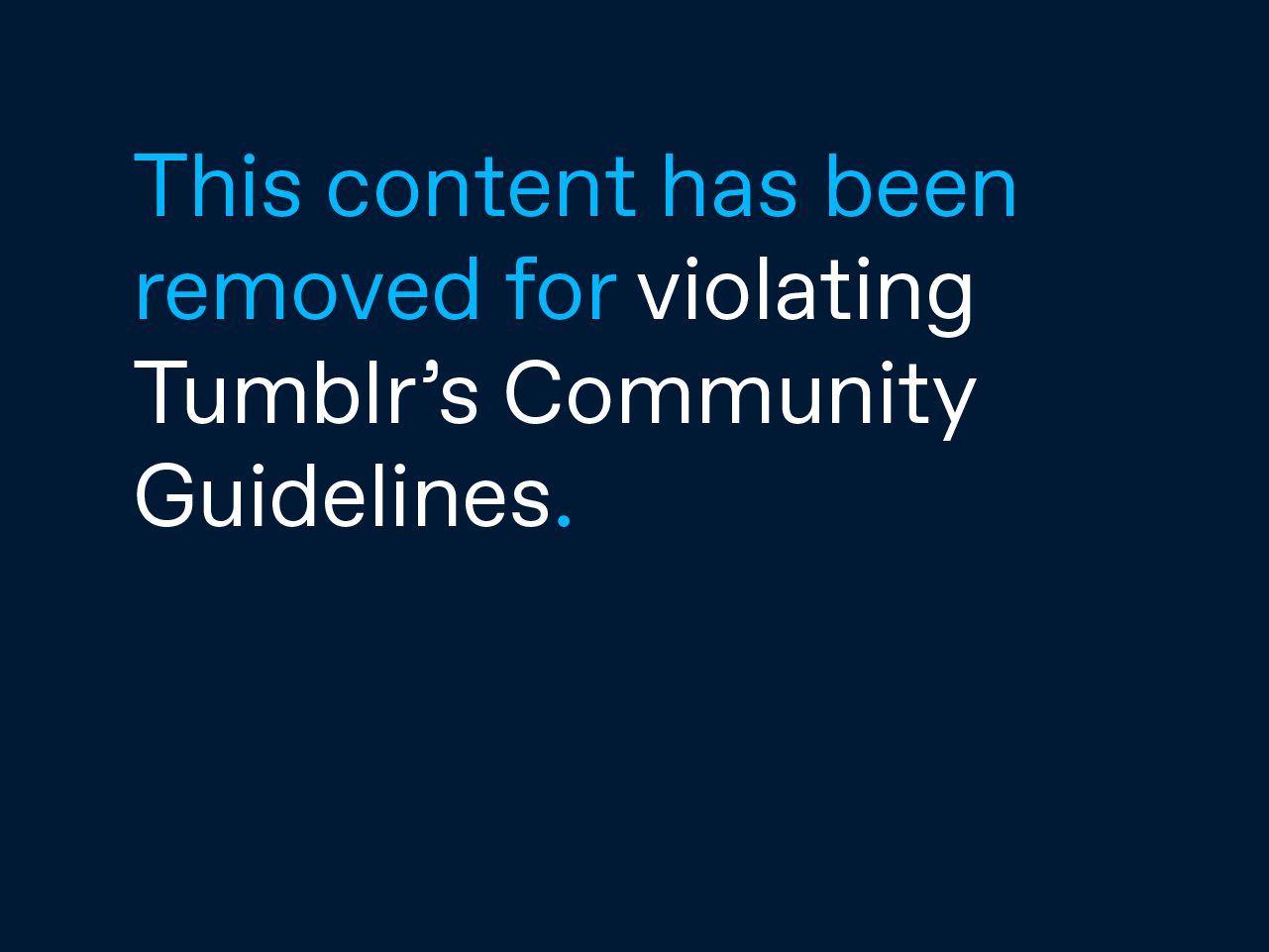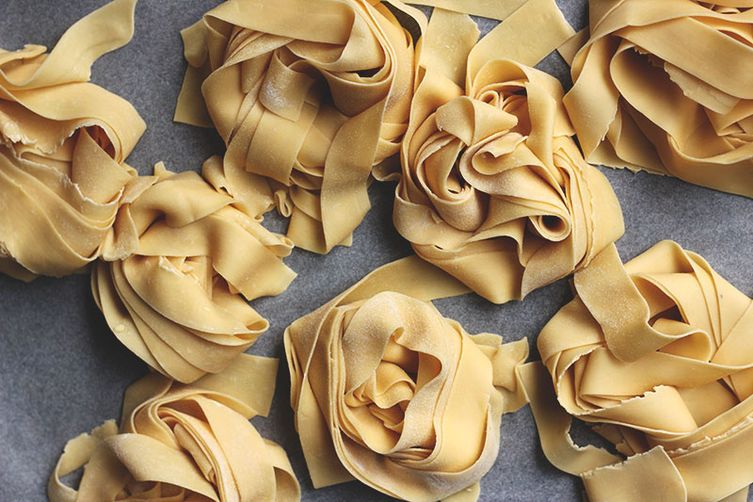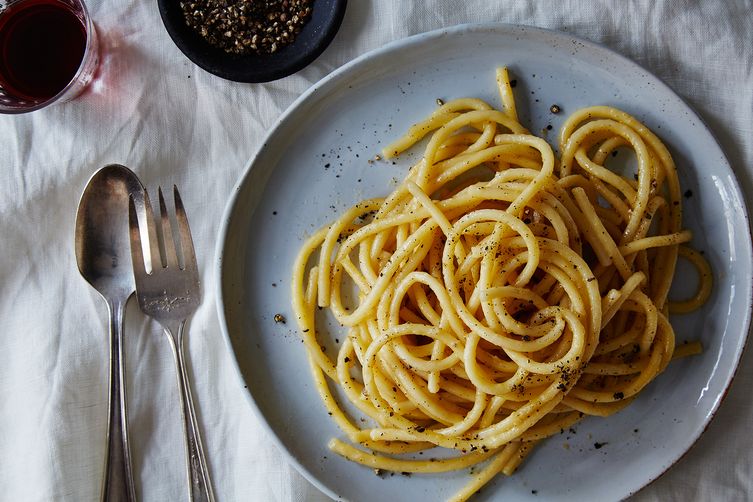Shared posts
VA - London is the place for me - Vol I - II - III - IV - V - VI
¿Qué es el pozole?
Hay días señalados en el calendario del Chilam Balam, en los nuestra cocina prepara un caldo muy mexicano llamado Pozole.
El pozole es uno de los platos más típicos de la gastronomía mexicana. Su ingrediente principal son los granos de maíz blanco, denominado desde la época precolombina, el cacahuacintle.
El maíz cacahuacintle es la base del pozole. Es un alimento prehispánico, que se utilizaba para la elaboración de tortillas o pan en la era azteca. Su nombre proviene del náhuatl cacahuacintli, de cacahuatl (cacao) y centli (maíz), ya que es un tipo de maíz que asemejaba en su forma al cacao.
Es un caldo que puede ser de tres tipos: blanco, rojo o verde. El color depende del adobo de chile con que se prepare. Así, adquiere ese color y un toquecito picante.
El pozole también lleva carne de cerdo y de ternera deshebrada, que le dan una sustancia y un sabor delicioso. En Chilam Balam, el pozole lo solemos acompañar de orégano seco, limón, sal, salsa picante de chile de árbol, lechuga rallada, rábanos rebanados y cebolla picada. En la mesa, ponemos tostadas, nata para untar y algún otro capricho que nos piden nuestros clientes.
¿Cuándo se hace pozole en Chilam Balam?
Solemos tenerlo los días patrios mexicanos, como el Día de la Independencia, el Día de la Constitución, el Día de la Revolución Mexicana o en días cercanos a la Navidad. Este martes 15 de septiembre de 2015, coincidiendo con el aniversario de la Independencia de México, tendremos pozole durante el Menú del Día y por la noche.
Probablemente, estás por probar la mejor comida mexicana típica representada -esta ocasión- en el Pozole.
La entrada ¿Qué es el pozole? aparece primero en Chilam Balam.
Get a Job! Top 10 (Anti-) work Songs by Punks and Post-punks
 Randal Doane, author of the book Stealing All Transmissions: A Secret History of the Clash (our review) gives us his Top 10 (Anti-) work Songs by Punks and Post-Punks.
Randal Doane, author of the book Stealing All Transmissions: A Secret History of the Clash (our review) gives us his Top 10 (Anti-) work Songs by Punks and Post-Punks.
What if punk scribe Mark Perry was right? What if “punk died the day The Clash signed to CBS”? It was a gesture of punk brashness, of course, for Perry to proclaim DOA the DIY spirit of punk in 1977. Perry wanted the protagonists of punk to reject corporate sponsorship, to thrive via the growing independent labels popping up around the UK and, perhaps, to ensure the survival of his Sniffin’ Glue, the Xeroxed standard bearer of DIY fanzines.
Be it the Bowery in ’75, or London in ’76, three forces loomed large in the punk imagination: boredom, toil, and their offspring; the DIY spirit. Punk bristled with the energy of anger and hilarity, an energy not readily converted into the work of musical virtuosity—hence, no Beatles, no Rolling Stones, nor Eric Clapton, for fek’s sake, in 1977. In its initial fervor, punk would be neither slave to wage labor nor slave to love. Joe Strummer and Mick Jones—and notably John Lydon, The Damned’s Brian James, The Slits, and Gang of Four – embraced Bernie Rhodes’ edict: “don’t write about love, write about what’s affecting you, what’s important.”
Along with the punk virtue of anti-virtuosity, of starting a band and then learning to play, this spirit led droves of youth to recognize that the so-called man behind the curtain was merely human, and that the work entailed in the production of popular music was not so exclusive. “The best thing that came out of punk was the demystification of the whole process of making records,” according to John Peel, patron saint of pirate radio. With a few drums, a few wires, three chords, and a voice, everyman – and everywoman – could start a (post-) punk band. The results? Some of the best songs about work in the history of not-quite-popular music.
In no particular order, here are eleven of my favorite tunes on the day job that embody the impudence of ’77.
~Elvis Costello – Goon Squad
Within the confines of Costello’s “emotional fascism” (the working title of the Armed Forces LP), “Goon Squad” best captures the paranoia of punching the clock, with all eyes watching, where a command equals a sentence. Ouch.
The Specials’ – Maggie’s Farm
Rarely, if ever, has a cover tune taken on infinitely more resonance than the original. (Dylan devotees may chafe at Terry Hall’s vocal treatment, but even Dylanologist Greil Marcus regards Bob’s treatment of “Maggie” as flawed by boredom.) With a broad swath of England bristling under Thatcher’s bridle, The Specials served up a fine tonic of parody for the pogoing crowd. (Runner-up for work-focused covers: Devo’s “Working in a Coalmine.”)
King Missile – Take Stuff from Work
As Marx noted, the history of work is the struggle over the extraction of surplus value. King Missile offers a brilliant update of Johnny Cash’s “One Piece at a Time” for the down-and-out, khakis-by-day, flannel-by-night crowd. Classic line: “Rubber bands, paper clips, memo pads, folders / take ‘em from work. / It’s the best way to feel better about your low pay / and appalling working conditions.”
The English Beat – Get a Job
The Beat: making the Thatcher years danceable. With “Get a Job,” Wakeling snaps off one of the finest lines of pop, imagining how the old make sense of the new: “‘Oh, you young people / are revolting.’” Some of them were, inspired by some of the tracks noted here.
The Slits – Shoplifting
If work provides no hold on your moral compass, what’s “the youth” to do? Either “Spend Spend Spend,” or go “Shoplifting,” the finer of these two tunes by The Slits.
Ciao Matto – Working for Vacation
Enough said. “Check In,” from the more recent and excellent Hotel Valentine, gets an honorable mention.
The Ramones – 53rd and 3rd
When CBGB gigs galore didn’t allow Dee Dee to pay the bills (read: his dealer), he took the 6 uptown for his swing shift, where the labor was piecemeal, so to speak.
XTC – Making Plans for Nigel
Have 35 words (or so), configured in relatively short phrases, ever evoked such tangible dread? Minimalist post-punk songcraft by XTC at their finest.
Hamell on Trial – Gotta Go ‘Round
Don’t know Hamell on Trial? Think The Clash meets George Carlin on acoustic guitar—and the brashest use of a 1937 Gibson you’ve ever heard. His political standpoint? He’s a scatological communitarian, a la Louis CK, Sarah Silverman, and Chris Rock, who share taboo tales in a way that push the limits of the liberal sensibilities of their audience. I could have easily picked the down tempo “Ask the Angels” (best song ever about life at a pizza joint), but “Around” gets my nod. I don’t know if there’s a track buried so deep on an album—track 15 of 16 from Tough Love (2003)—that has brought me so much joy. With lines like this—“I walk 47 miles of guitar cord / I use a Marshall stack for a necktie”—it’ll be the best $1 (or more) you’ll spend at bandcamp.com this year.
The Clash – Koka Kola
“Career Opportunities” may be the obvious choice from the oeuvre of The Clash, and a creative choice might be “Police and Thieves” (policing and thieving as homologous occupations), but I favor here the 100+ seconds of “Kola.” The tune bristles with urgency and paranoia, and continued The Clash’s hopped-up homage to rock steady. Beyond the sonics and sentiment, too, it recalls the “corridors of power” in which I worked (a la Mark Perry) as a lowly clerk. Upon the arrival of the lift, the dulcet tones of a recorded voice would indicate “elevator going up”: each and every time, if only under my breath, I would break into song: “In the gleaming corridors/of the 51st floor …” (And honorable mention to Big Audio Dynamite’s “Sony,” if only because shortly after its release, Sony took control of the recordings of BAD and The Clash.)
The Clash, though, were merely poseurs in their anti-work ethic. As Joe Strummer noted, “For some reason, we weren’t night-clubbing people. All I can remember is writing and rehearsing and recording. A real intensity of effort.”
How nice of the lads, not to be nightclubbing people, so we could be. Cheers!
~Randal Doane is the author of the award-winning Stealing All Transmissions: A Secret History of The Clash (foreword by Barry “the Baker” Auguste, backline roadie for The Clash—PM Press). You can follow him on twitter @stealingclash, read episodic musings at his website stealing all transmissions, and most importantly, buy his book—which is available in North America, the UK, and around the world. Your support makes these words possible.
All words by Randal Doane. More writing by Randall on Louder Than War can be found at his author’s archive.
The post Get a Job! Top 10 (Anti-) work Songs by Punks and Post-punks appeared first on Louder Than War.
top 10 anti work songs part 2
top 10 anti work songs numbers 1 to 5 are here
The English Beat – Get a Job
The Beat: making the Thatcher years danceable. With “Get a Job,” Wakeling snaps off one of the finest lines of pop, imagining how the old make sense of the new: “‘Oh, you young people / are revolting.’” Some of them were, inspired by some of the tracks noted here.
The Slits – Shoplifting
If work provides no hold on your moral compass, what’s “the youth” to do? Either “Spend Spend Spend,” or go “Shoplifting,” the finer of these two tunes by The Slits.
Ciao Matto – Working for Vacation
Enough said. “Check In,” from the more recent and excellent Hotel Valentine, gets an honorable mention.
The Ramones – 53rd and 3rd
When CBGB gigs galore didn’t allow Dee Dee to pay the bills (read: his dealer), he took the 6 uptown for his swing shift, where the labor was piecemeal, so to speak.
XTC – Making Plans for Nigel
Have 35 words (or so), configured in relatively short phrases, ever evoked such tangible dread? Minimalist post-punk songcraft by XTC at their finest.
Hamell on Trial – Gotta Go ‘Round
Don’t know Hamell on Trial? Think The Clash meets George Carlin on acoustic guitar—and the brashest use of a 1937 Gibson you’ve ever heard. His political standpoint? He’s a scatological communitarian, a la Louis CK, Sarah Silverman, and Chris Rock, who share taboo tales in a way that push the limits of the liberal sensibilities of their audience. I could have easily picked the down tempo “Ask the Angels” (best song ever about life at a pizza joint), but “Around” gets my nod. I don’t know if there’s a track buried so deep on an album—track 15 of 16 from Tough Love (2003)—that has brought me so much joy. With lines like this—“I walk 47 miles of guitar cord / I use a Marshall stack for a necktie”—it’ll be the best $1 (or more) you’ll spend at bandcamp.com this year.
The Clash – Koka Kola
“Career Opportunities” may be the obvious choice from the oeuvre of The Clash, and a creative choice might be “Police and Thieves” (policing and thieving as homologous occupations), but I favor here the 100+ seconds of “Kola.” The tune bristles with urgency and paranoia, and continued The Clash’s hopped-up homage to rock steady. Beyond the sonics and sentiment, too, it recalls the “corridors of power” in which I worked (a la Mark Perry) as a lowly clerk. Upon the arrival of the lift, the dulcet tones of a recorded voice would indicate “elevator going up”: each and every time, if only under my breath, I would break into song: “In the gleaming corridors/of the 51st floor …” (And honorable mention to Big Audio Dynamite’s “Sony,” if only because shortly after its release, Sony took control of the recordings of BAD and The Clash.)
The Clash, though, were merely poseurs in their anti-work ethic. As Joe Strummer noted, “For some reason, we weren’t night-clubbing people. All I can remember is writing and rehearsing and recording. A real intensity of effort.”
How nice of the lads, not to be nightclubbing people, so we could be. Cheers!
~Randal Doane is the author of the award-winning Stealing All Transmissions: A Secret History of The Clash (foreword by Barry “the Baker” Auguste, backline roadie for The Clash—PM Press). You can follow him on twitter @stealingclash, read episodic musings at his website stealing all transmissions, and most importantly, buy his book—which is available in North America, the UK, and around the world. Your support makes these words possible.
All words by Randal Doane. More writing by Randall on Louder Than War can be found at his author’s archive.
top 10 anti work songs numbers 1 to 5 are here
The post top 10 anti work songs part 2 appeared first on Louder Than War.
There's not much glory in the life of a witch.
Come for the LOLs, Stay for the Debate

The folks at reddit are doing image memes based on places. It’s a twist on the old “come for the ____, stay for the _____” slogan. It started off with Arkansas. Colbert did that one long ago. 
Shortly afterward, Minnesota joined in. The Minnesota karma train roared through the discussion. 
Chicago was mentioned in the comments under the Minnesota post. 
Then there was Nashville. As in the other posts, opinions were divided as to the city’s advantages and drawbacks. 
North Dakota is currently the highest-ranked post of this kind. There may be more coming.
Censorship, Corruption, and Bias: A Video Game About Newspaper Journalism
 Screencap from The Westport Independent
Screencap from The Westport Independent
Swedish independent game developers Pontus Lundén and Kristian Brodal are stoking a conversation about ethics in journalism—and (thankfully) it has nothing to do with Gamergate. The pair created The Westport Independent, "a game about censorship, corruption, and newspapers," where you play a newspaper editor confronted with difficult choices: How do you produce a paper in the face of a corrupt government? Do you tinker with stories in order to keep them at bay? Do you run headlines that please the rebels rising up against the regime? Or do you say fuck it, print the truth, and hope you don't get shot in the head by government goons or nutso anarchists?
It's a game that forces your hand, and proves a point about the media: There is no such thing as true objectivity. There are always choices about what gets printed, what gets left out, and how stories get edited based off who you're trying to please.
After learning about Westport Independent last month from PAX Prime, Seattle's gaming convention, I tested out the beta version (the full version will be available by the end of the year). I decided that no story should be edited and the truth would prevail. Soon enough, my writers were in jail and my paper was shut down.
Having failed to keep my imaginary newspaper afloat, I got on the phone with Lundén to talk about the game, journalistic objectivity, media cynicism, and why I will never, ever get far very far in Westport Independent.
VICE: Why create a game about media bias?
Pontus Lundén: There is a game called Papers Please. It's a game where you play a border control guard, basically. The tagline is a "dystopian document thriller." It's a very depressing story, but a really, really good game. What it showed was in games you can have very boring and mundane tasks that become interesting because of the context. So even though all you're doing is just checking papers, because you're in this really oppressive state, for the guys that come to the border patrol you control their lives. You basically decide the fate of their lives and it becomes a really, really heavy story.
We liked that concept. There is something that's called a game jam—it's a thing that basically you develop a game on a limited amount of time. We were doing this game jam where we had 72 hours to make a game. We tried to make a game about hiding information, and that's what ended up being our game.
I saw in an interview with PC Gamer where you said that "the loyalist government is a problem that the rebels are not a good solution to." Why create something with such a heavy undertone where you kind of can't win?
[Laughs] I suppose it has something to do with that we're pretentious douchebags?
Obviously I feel that censorship, the way you twist the news, or the way that journalism still today works—it's very much driven by an agenda. I think that's something everyone has experienced. It's really easy to say, 'Oh, it only happens in these dictatorship countries.' But, no, it happens here as well. Like I just need to send people to Fox News to get an extreme example of that. It's a very interesting subject and that's not really something that's been handled in a game before.
Is this something you're seeing in Sweden? This agenda-driven news?
It's really inspired by British and American society. It's here as well. I get this question a lot: People sort of think because we make a game like this, that it's a big thing in Sweden. But it's like, no, it's a big thing everywhere. It's a thing in Sweden also. You can see very easily that the press is driven by an agenda and most of all that they have a political opinion. And I think that's OK, because I don't think you can be completely objective anyways.
"In games you can have very boring and mundane tasks that become interesting because of the context." - Pontus Lundén
I had an editor once who I remember saying that there's no such thing as objective journalism.
No, there's really not.
On Motherboard: Journalists Are Looking to Drones as the Future of Reporting
When I saw that there was a game about journalism ethics, I wasn't sure if that was great or really scary. Why is this something that we really need right now? A game to teach us how to be ethical?
There has been stuff like this before. We usually say with our game, 'You can't lie, you can only not tell the entire truth.' Which is a point we're trying to make sure is there. It's very rare for media to out and out lie. That mostly never happens. It's just that you only report on one side and you only show one context, which of course gives it a very strong angle. That's the critical thinking we want people to understand. We do not only want to make sure that people understand the power that media has, but also the pressure they have on them, and ask why do media write what they write?
What do you think the strongest pressures are?
I think it depends on what paper you're working on. I think most papers have, if nothing else, they have some sort of image. So for example, here in Sweden, we have plenty of papers that have editorials. And of course these editorials are political usually. Editorials are quite subjective. That's the point of them.
In Sweden, most of the newspapers are decently open with what political angle they have. They say if they are right-wing or left-wing. So, of course, the news that are reported there are angled in that sort of way.
"You don't really want it to be the news that people read, but that sells." - Pontus Lundén
You're a journalist. Journalism is a business. Let's face it: It means journalists need money. I'm going to sound super anti-capitalist, but no matter how you see it there will always be something giving you some sort of pressure. If it's like, 'I need to write an article this way so it's popular enough so my paper sells enough.' That will be a pressure and it will make you write populist articles.
Right, but I want to believe media isn't all like that.
Here's the deal: I don't think it's a problem that people are not objective. I think it's good that people are subjective and very open with their subjectiveness. Always disclosing is not always possible either. I think the thing that I hope people understand with our game is that because there are so many things called "news," you shouldn't really rely on one source.
In South Korea, competitive gaming—also known as eSports—can either make you rich and famous or land you in rehab. We went to Seoul to investigate.
<span id="selection-marker-1" class="redactor-selection-marker"></span>
I was showing your game to some of my journalist friends that work for different papers, and we really were laughing about how much you guys really believe in the power of newspapers. Maybe more than we do! As journalists, we do wonder, Are people reading the thoughtful journalism that people put out, or are they only reading clickbait and watching Fox news?
Well, if you look at how the game is made, the articles that are the most clickbait-y are the ones that have the most effect.
I did notice that. I was terrible at your game because I couldn't edit these articles to please either side. Everyone at my paper got arrested.
Yeah, that'll happen. It's a game. You need to do some things that make it more of a representation than real life.
That's actually a good point, though, that you can just print everything. If you print everything, you'll either get taken away or you can actually end up ending in the same situation that you started.
Right, and when I put celebrity stuff in, my paper did amazing.
Yup, that's what i mean with the pressures. You don't really want it to be the news that people read, but that sells. It's a very cynical look at things.
I was surprised that you could lay out the paper and edit the articles and choose where it was distributed, but that advertising didn't come into play.
We did do some thinking about it. It's a thing with limited time and money to develop the game. Gameplay-wise, it became very similar anyways: Different articles catered to different districts. You would have to write your articles in a certain way to please advertising firms. Which is real life, unfortunately.
Yeah. In real life, I haven't come up against an oppressive governmental regimes, but I have pissed off advertisers.
You have different districts, so you still have to choose what articles to print so you sell [papers].
Have you guys ever worked in media?
No.
Read: Admitting My Addiction to 'Age of Empires III' Saved Me from Depression
Have you created games in the past that aim to do a public service?
We do like to make games that force people into uncomfortable situations. Not all of them are socio-political, but we do like to work with that when we can.
We have done two more games—they are both games about where people are forced to do things that are not so nice. We have one game where you're playing a field surgeon. The concept is you're at war and you get new soldiers sent to you all the time, but you need to send soldiers back to the front lines, otherwise your camp will be taken over as well.
Whoa. That's heavy.
You have to balance healing people as fast as possible ... As the game progresses, you get patients faster and faster so you need to do all this stressful stuff faster.
And then we made a game about starvation in a post-apocalypse. You basically have been elected the chief of a camp in the post-apocalypse through the democratic process that you had a rifle. What you're trying to do is make sure that rations are enough for everyone and that people scavenge for more food. But of course there is not enough food and people get angry and in order to maintain order you are forced to do not-nice things to people who are about to do not-nice things.
So you make games about people making horrible choices.
There's no good choice, but you're forced to make one. I think it's more interesting when you pressure people actually to do them—to make the choice. If they're under pressure, people will find out interesting things about themselves.
Follow Leah Sottile on Twitter.
Reducing bias by becoming friends with diverse television characters
"It's not easy to get different types of people to just organically become friends," [Edward Schiappa, a media studies researcher at MIT] says. So how do you get the benefits of intergroup contact theory in a socially segregated world? That's where television and my good friend the Fresh Prince come in.How Shows Like 'Will & Grace' And 'Black-ish' Can Change Your Brain - Maanvi Singh summarizes research into the potential for more inclusive and diverse television programming to reduce prejudices, for NPR's Codeswitch.
White House release video making fun of Dick Cheney's lies
I'd say Dick Cheney will go to his grave denying he was wrong about invading Iraq, but he seems to be an ideal heart transplant patient so he'll probably live forever.
Iraqi woman kills ISIS commander who forced her into sex slavery
 Straight to hell. More »
Straight to hell. More »
The Game of Thrones cartographer explains how to draw maps
10 Pasta Tips We Learned from Cookbooks
Tips that'll have you making pasta like a pro.
Italians eat pasta almost every day—sometimes, twice a day. And they're onto something. Spaghetti, penne, orecchiette, fusilli, farfalle, linguine, tagliatelle: There's no noodling around. Pasta is pretty perfect.
But even pasta—the Hail Mary pass of weeknight dinners and easiest comfort food in the books—can be finnicky. Let it cook too long, and pasta goes from al dente to al mushy; don't salt your water and end up with paste-tasting noodles. Pasta problems call for cookbooks, of course—and in some we found techniques that'll change the way you sauce, season, and cook.
Here are 10 pasta tips from cookbooks that are anything but impastable:
Tip: Salt your water like you mean it.
Urban Italian by Andrew Carmellini
“Now, I’ve heard all the kinds of arguments, pro and con, about the medical implications of salt. I’m no doctor, but I am a specialist in flavor, and I can tell you for sure that if you don't salt your water, your pasta will taste like plain wet cardboard. Salt is what gives food that elusive quality known as 'taste': It brings out the sweetness in carrots and the acidity in tomatoes. Me, I’d rather skip that bag of chips or those movie-theater nachos and salt my pasta water instead."
How to: Salt your pasta water aggressively—really. It should taste like the sea.
Tip: Embrace the freeze.
The Scarpetta Cookbook by Scott Conant
“I always freeze my fresh pasta before cook it. I know that sounds sacrilegious, but freezing actually makes fresh pasta cook up better. When submerged in simmering water, the frozen-fresh pasta does not absorb as much liquid as would just-made pasta. It holds its shape without expanding so much that it becomes flabby, and its flavor does not become diluted with excess water.”
How to: For fresh pasta like spaghetti and tagliatelle, portion it “into nests by wrapping around your hand” (Conant suggests 4-ounce portions). Dust the nests with a litte flour, place on a baking sheet, freeze until hard, and then transfer to a freezer bag or airtight container where it will keep, frozen, for up to 1 month.
Tip: Give your ragu lots and lots (and lots) of time.
The Classic Italian Cookbook by Marcella Hazan
“There are three essential points you must remember to make a successful ragu:
- The meat must be sautéed just barely long enough to lose its raw color. It must not brown or it will lose its delicacy.
- It must be cooked in milk before the tomatoes are added. This keeps the meat creamier and sweeter.
- It must cook at the merest simmer for a long, long time. The minimum is 3 1/2 hours; 5 is better.”
How to: Take your favorite ragu recipe and apply Marcella’s tips. A 1/2 cup of milk is the right amount for 3/4 pound ground beef and 2 cups canned Italian tomatoes. Steve with tagliatelle, tortellini, rigatoni, conchiiglie, ziti, or rotelle.
Tip: Pasta sauce can be whey cool.
Genius Recipes by Kristen Miglore
“The sauce has only two components: thick yogurt and starchy, salty pasta cooking water, which together create the soothing texture of alfredo sauce, lightened up with yogurt’s tang. But it won’t taste austere, especially once you garnish with caramelized onions and Pecorino to balance out the sweetness and salt.”
How to: You're in luck—here’s the recipe. If you’re looking to shake things up, Kristen suggests blending the sauce with tahini or mint or adding greens—like spinach—to the pasta’s water as it finishes boiling.
Tip: For better lasagna, make meatballs.
Family Table by Michael Romano and Karen Stabiner
“Homemade meatballs, made from a mix of beef, pork, and veal, then cooked and sliced, provide more flavor and texture than mere ground beef.”
How to: Start with your favorite lasagna and meatball recipes. Make the meatballs—slicing them into 1/4-inch thick slices after they’ve finished cooking. Layer the sliced meatballs in the lasagna as you would meat sauce and bake everything as usual.
Tip: Cooking perfect pasta is a two-step process.
Franny’s by Andrew Feinberg, Francine Stephens, and Melissa Clark
“Step 1 is to undercook the pasta by about 2 minutes. This ensures that the pasta maintains an essential spine of chewiness. Step 2 is to finish cooking the noodles in the sauce, which, ideally, you’ve just simmered together in a skillet on another burner. Finishing the pasta in the sauce gives the noodles a chance to meld with and absorb all the good flavors in the pan. It makes for a deeper-tasting dish in which all the ingredients are wedded into a well-balanced whole.”
How to: Do as described above, letting the pasta cook in the sauce for 1 to 3 minutes. If the pan is looking dry, add a splash or two of plain water (not the pasta’s cooking water, as this could make everything too salty).
Tip: Make pasta for one and cook it like risotto.
Heart of the Artichoke and Other Kitchen Journeys by David Tanis
“It’s a bit like Spanish fideos, in which pasta is cooked like risotto and the broth is added in small increments. My version is rather soupy and littered with vegetables. I boil the pasta until it’s half-done and cook the vegetables until they’re half done, then combine them and finish the cooking with a small amount of pasta water.”
How to: Tanis suggests using a short pasta like orecchiette or pennette. Start some vegetables (chopped zucchini, artichokes, beans, etc.) in a skillet with a bit of olive oil, onion, garlic, tomato, and pancetta if you’d like. When both the pasta and vegetables are half-way cooked, add the pasta to the skillet with a ladleful of the pasta’s water and simmer, stirring occasionally, until the pasta’s al dente and the vegetables are cooked how you like them. Pour into a bowl and eat with a spoon.
Tip: Go nuts with fresh pasta—literally.
Crazy Good Italian by Mike Isabella
“Using nut pastes in pasta dough adds a really interesting depth of flavor, especially when you toss it with complementary sauces and herbs.”
How to: Use a tablespoon of nut paste in your pasta dough (this can be added along with the egg yolks). Isabella makes pistachio pasta dough with pistachio paste, cuts it into fettucine, and pairs the pasta with lamb ragu, feta, and mint.
Tip: Don’t let vegetables ruin your ravioli.
Mastering Pasta by Marc Vetri and David Joachim
“You don’t see too many ravioli with raw vegetables inside. The vegetables would leak too much water. There’s the rub with vegetables: they’re 70 to 95 percent water. I usually roast, sweat, or somehow cook them first, before mixing them with herbs and seasonings. If you puree the vegetables, keep the filling firm by mixing in some bread crumbs, cheese, or bread soaked in milk. Even so, it’s a good idea to freeze vegetable ravioli right after you assemble them. Quick freezing will stop the liquid from seeping into the dough.”
How to: Do as Vetri says above. Don’t be afraid of the vegetable ravioli—you’ve got them beet.
Tip: Toast your black pepper, toast it real good.
Saveur: The New Classics Cookbook by the editors of Saveur magazine
“Merely sprinkling preground black pepper over the finished pasta won’t come close to achieving the desired flavor in a classic sauce. Instead, crush whole black peppercorns in a mortar and pestle or grind them on the coarsest setting in a spice grinder. Then ‘toast’ the cracked pepper by frying it in the olive oil you’ll be using for the pasta sauce, heating it until it smells very fragrant.”
How to: Whether it’s Cacio e Pepe, Primavera, or Carbonara, toast your peppercorns. It’ll add an extra depth and the “uh-huh” flavor the preground stuff sorely lacks.
Have a favorite pasta tip? Tell us in the comments below!
Photos by James Ransom, Sarah Coates, Posie Harwood, and Bobbi Lin
How My Obsessive Arrested Development Watching Helped Me Overcome My Anxiety

An early-season Arrested Development promo photo
I have watched the first three seasons of Arrested Development 35 times. That's a conservative guess, as it might actually be a lot more. Many, many nights I've had the show playing on my phone through an earbud as I try and fall asleep. I've watched it at work. I've also loaded it on my phone, and listened to it while walking around the city, or on long drives. It's a lot.
And while I've met people who've been to hundreds of Phish or Grateful Dead shows throughout their lives, or read about people like Steven Soderbergh who went to see Altered States 11 times in two weeks, or the guys who set a TV binge-watching world record, 35 watch-throughs of Arrested Development still feels like a lot.
For a while Arrested Development was just a show that I loved. And I really do love it. The second season especially, I'd argue, might be one of the most winningest streaks in TV history. Early on in my fandom, the show felt like a feat of engineering, something to be studied from a technical standpoint. I wanted to know every setup, double entendre, and hidden joke. As an aspiring writer, studying the ease with which it pulled off this depth was like its own version of film school.
But when does enjoyment become obsession? And when does obsession become a detriment?
I came upon the show at a time when everything was good. I was in college and had been living inside a pre-graduate bubble, with my youth and the endless potential of life on my side. At 20, I felt invincible, exceptional, and destined to succeed. But, of course, things rarely work out as planned. What followed were years of rejections, bad jobs, missed opportunities, anxiety, and self-sabotage. My mother was terribly sick. I bounced from job to job, never really progressing in any of them. I distanced myself from people I cared about. Depressions were regular, and awful (often accompanied by the guilt of self-indulgence, and a feeling of the depressions being somehow unearned). Some days it was hard to even get out of bed. My enjoyment of AD was tied up in all of it.
It was, ironically enough, a state of actual arrested development.
Arrested Development became a world to escape to when all else felt unwieldy. I've never found a closer match to my sense of humor in any single piece of media entertainment. I still can generate actual, physical laughter just thinking about certain lines from the show ("I always pictured him in a lighthouse"; "I did not find their buffoonery amusing"). But there was something more personal that signified my pull to the show. The heart of AD is about a family coming back together—or, put best by Ron Howard in the opening credits: "a wealthy family who lost everything, and the one son who had no choice but to keep them all together." As I moved away from Ohio (where I grew up) and on to a series of bigger cities, I wasn't always "physically" there for my family. AD resonated so deeply because of this. It's not that my family didn't want me to go, either—they wanted me to follow my interests wherever they took me—but when things weren't going well while away from them, that pain was intensified. I envied, in a weird way, what the Bluths were able to achieve despite their dysfunctions, simply by virtue of their being together.
Often I'd doctor my Hulu or Netflix viewing history, so my friends and family—we shared accounts—would not know I was watching the show this often, in the same way an alcoholic will cover up the smell of liquor on their breath with some mints. Sometimes I found myself adding a few too many jokes and references to the show in everyday conversations, to the point where I'd have to consciously dial it down for fear of sounding like one of those middle aged dudes who've clung a bit too hard to a favorite band—say, Motherboy—from their high school days. I didn't want to be the guy who's seen talking about, and quoting AD, while oblivious to the fact that he's also wearing a Bluth's Original Frozen Banana Stand t-shirt (but, full disclosure, it's happened to me).
It sounds like a cliche, but within the Bluth family I saw flashes of myself. And not the self I try to maintain in my day-to-day encounters, but hints of a darker, more difficult self that, in my worst moments, I could see myself starting to become: Gob's truculent narcissism, insecurity, and need for validation; Tobias' oblivious self-delusion; Lindsay's vapid do-gooderism, George Michael's own self-sabotaging anxieties; Buster's infantile neuroses; Michael's false sense of superiority. The more I watched, the more of myself I saw in these people.
Someone I know in AA once told me it isn't necessarily the drink or the drug that's the problem, it's how and why a person uses it. And the way I was using this show, and others too (my usual lineup: It's Always Sunny in Philadelphia, Parks & Rec, Seinfeld, Curb Your Enthusiasm, Flight of the Conchords, and the sitcoms of Graham Linehan), began to make me feel weird and deeply compulsive. Like a security blanket (or a pair of never-nude cut-offs) that, in times of high stress, I could always count on.
I tended to watch the show more often in times of stress. Every time I had a job interview, I'd be up half the night before watching AD. I'd push back making a phone call I dreaded with an episode or two. I'd wash down a hangover with an entire half season and a bottle of Gatorade.
Recommended: Meet the two kids who remade Indiana Jones shot for shot
<span id="selection-marker-1" class="redactor-selection-marker"></span>
My compulsive viewing habits were a tactic for dealing with my anxiety. I'm someone with an extremely hyperactive mind, and when I'm put under stress I tend to get overloaded with a series of ping-ponging neuroses. The real problems begin when the anxieties compound and soon I'm fully convinced that every horrible thing that could possibly happen will not only happen but has already begun to happen. Such worry can be paralyzing. Sometimes the worry gets so bad that my mind will try and trick itself to be OK with "opting out" of something instead of actually trying. When I reached that point in the depths of my AD watching, that's when things would get a little sad, episodes of Arrested Development would get watched, and regrets would be created. If I could train my mind on a TV show that I knew and loved, it would distract, comfort, and re-focus it away from the stress. But that doesn't solve anything, it often makes it worse. Psychologically, it's a bit like Lindsay Bluth getting drunk "to celebrate" the night before her big audition and missing it the next morning.
There are worse things to be addicted to than Arrested Development. It can feel trivial to talk about—it's not as if I'd been using vodka (like Lucille), sex (like Kitty Sanchez), or meth (Barry Zuckerkorn, probably) to get outside of my sense of self when facing pressure. Nevertheless, my AD binge-watching was the manifestation of genuinely addictive behaviors. A recent study at the University of Texas at Austin concluded that binge-watching "allows (people who feel lonely or depressed) to escape from negative feelings." It also found a correlation "between binge-watching and loneliness, depression, and having self-regulation deficiency, which is an inability to control compulsions."
But eventually, things got better.
On Motherboard: How the Internet Ruined Arrested DevelopmentArrested Development
I don't remember the actual epiphany, but at some point about a year and a half ago, I began to ask why I was watching these same 53 episodes over and over. This slight pivot into self-awareness taught me that if I ever feel an need to watch the show, it's a red flag. I can now use this impulse to hack my emotional well-being: maybe there's a small, positive step I can take toward handling the things I need to take care of before I throw it on. Often, if I take this step, it turns out I don't end up watching Arrested Development at all. It's not that the anxiety is any better per se, or that certain aspects of my life are any less stressful, but this slight tweak in how I handle my anxiety has made a positive difference. It helps to try and step back and think about what it is that I'm actually worrying about. And I've found a new strength in not only knowing what it is but accepting it too.
I still watch AD all the time, but my appreciation for it has once again changed. It's satisfying to know something so fully and completely. It's more than that, too. Now, somewhere buried within my experience of watching AD, lies a chunk of my own formative "development" and the full range of unexpected emotions—pain, sadnesses, frustrations (some triumphs too)—of that time. It contains a small key of my own self-discovery. Now when I watch, I do so and reflect that Arrested Development has played a part of how I view the world and of who I am today.
More than anything, I've learned that it's perfectly OK to have anxiety. As Tobias Funke once said, "there are dozens of us... dozens!"
Follow David on Twitter.
Hipster Barbie’s Instagram Mocks Annoying Hipster Instagram Posts
This hipster barbie Instagram account does a wonderful job of mocking the stereotypical, unoriginal, and tremendously “authentic” posts that we often see on Instagram.














Recetas con tarjetas ilustradas de Jing Zhang

La manera de presentar recetas es casi siempre la misma y se compone básicamente de textos y fotografías. En si esto conviene bastante bien y más aun si tenemos bonitas fotografías que ilustran bien los platillos que hacemos.
La ilustradora de origen chino y radicada en Londres Jing Zhang presentó un proyecto muy interesante de recetario hecho con ilustraciones que ella misma ha creado. Cada receta se resume a una ilustración con el paso a paso de cómo hacer un platillo y los ingredientes. Para hacerlo aun más interesante la artista incluye personajes que le dan vida a cada receta.

Las ilustraciones de Jing Zhang se han convertido en una verdadera referencia ya que la artista ha trabajado para importantes marcas internacionales así como para instituciones de la Unión Europea, Dubai, Canadá o los Estados Unidos.

Si estas interesado en conocer más del trabajo creativo de la joven y talentosa ilustradora Jing Zhang, te sugiero visitar su portafolio en línea dónde encontrarás una prolífica oferta de diseño. Personalmente me encantaría que esta artista ilustrara algunas de mis recetas.

Mas información | Jing Zhang Illustration
Directo al Paladar | El arte de Tisha Cherry en una galleta Oreo
Directo al Paladar | Pastas de sésamo y miel. receta
También te recomendamos
Modernos bodegones que recogen las dietas de moda por Stephanie Gonot
Por qué la vendimia influye tanto en el sabor del vino
Algunas de las comidas tradicionales más antiguas del mundo
-
La noticia Recetas con tarjetas ilustradas de Jing Zhang fue publicada originalmente en Directo al Paladar por Philippe Saez .
Un boi de raza Caldelá subastado en Silleda por 5.259 euros
A Central Agropecuaria de Galicia, en Silleda, rexistrou hoxe o seu récord absoluto en canto ao prezo acadado por un exemplar. Foi na poxa de vacún maior, cun boi de raza Caldelá procedente dunha explotación de Coles (Ourense) que foi adquirido polo matadoiro Galcarnes (Monforte de Lemos), por un prezo de 5.259 €.
O récord situábase ata hoxe nos 5.022€ acadados por outro boi o 3 de xuño de 2014, sendo o anterior mellor prezo 4.622€ pagados tamén por un boi o 8 de abril dese mesmo ano.
La entrada Un boi de raza Caldelá subastado en Silleda por 5.259 euros aparece primero en Campo Galego.
Chandra Bahadur Dangi , the world's shortest man, RIP

Chandra Bahadur Dangi, who was just 21 inches tall (54.6 cm), has died at age 75. Dangi is seen in this photo with Sultan Kosen, the world's tallest man at 8' 2" tall (2.48 meters), when the pair met in London in November. Read the rest
Que no te tomen el pelo: mitos de la calvicie
La tricología es la ciencia que se ocupa del diagnóstico y el tratamiento de las alopecias y los problemas del cabello. Desde la historia bíblica de Sansón y Dalila, en la que muchos han visto el corte de la pelambre del forzudo como una alegoría de la castración, se ha considerado la cabellera masculina como un signo de virilidad. Por lo tanto, su caída natural suele conllevar sentimientos de desencanto ante lo que sería la caída de otras funciones viriles (en particular, esa que estás pensando).
Pero la ciencia ha acudido en consuelo de los pelados del mundo, al determinar que la caída del cabello se debe a la acción de la testosterona, la hormona de la masculinidad. De allí surge una mitología contraria, que confiere a los calvos una gran dosis de sensualidad y erotismo (y si además son narizones y zapatones, ni se diga). La torta se ha volteado tanto en ese sentido que incluso la calvicie de un candidato pareció ser su único argumento electoral hace unos meses. El link de esa ingeniosa campaña está aquí.
Por supuesto, en medio de tantos mitos, no podían faltar los vendedores de sebo de culebra, que se aprovechan de unos y otros argumentos con el fin de ofrecer las consabidas curas milagrosas a quienes desde finales de sus veintes ya se ven camino al calvario, o incluso evalúan dedicarse al boliche o el billar con el fin de mimetizarse con sus esféricos instrumentos. Como siempre, las pseudociencias lucran con la desesperación.
La Manzana Prohibida es un programa promovido por la Sociedad Secular y Humanista del Perú que tiene como objetivos popularizar la ciencia y promover el pensamiento crítico y el escepticismo mediante entrevistas con expertos. Precisamente, en una de sus ediciones tratamos el tema de la calvicie: origen, evolución, prevención, tratamiento y mitos.
¿Es una enfermedad o más bien una variante natural de nuestra especie? Si la calvicie no es disfuncional, ¿cuál es el motivo para tratarla? ¿Es la calvicie hereditaria o causada por el ambiente? ¿Cómo se explica la aparición del cabello en términos evolutivos? ¿Por qué el hombre sólo tiene pelo en la cabeza y no en el resto del cuerpo, como en los demás primates? ¿Qué explica que surja la calvicie en nuestra especie? ¿Se puede revertir la calvicie? ¿Cuáles tratamientos son efectivos y cuáles son populares, pero no funcionan?
También conversamos sobre algunos mitos, como:
- El pelo se cae más cuando te peinas.
- Usar gorras o sombreros evitan que el pelo respire.
- Sólo los hombres se pueden quedar calvos.
- La calvicie afecta la virilidad.
- El estrés te puede dejar calvo.
- El afeitarse hace que el pelo crezca más fuerte.
- La seborrea produce caída de cabello.
Para ello tuvimos como invitado especial al tricólogo Rodrigo Velasco, experto en cirugía capilar, quien estudió medicina en la Universidad Peruana Cayetano Heredia y se especializó en cirugía plástica reparadora y estética en el Hospital Universitario Miguel Servet (Zaragoza). Fue una de las entrevistas más entretenidas del programa, aunque suponemos que más de un vendedor de curas milagrosas terminará jalándose los pelos luego de verla.
Puedes ver esta interesante entrevista aquí:
Y la segunda parte, aquí:
10 Totally Normal Things to Say When Your Mom Calls You Three Minutes After You Smoked That Joint
We’ve all been there. You come home from a stressful day at work and immediately pull your comfiest sweats, pour yourself a glass of wine, and roll yourself a fat joint. Then, just three minutes after you’re done blazing that sweet, sweet spliff, your mom calls. Don’t panic! Even though your mind is somewhere between “How do cell phones work, though?” and, “Is that Chinese place still open for delivery?” here are ten quick, easy, and totally not-stoned-sounding phrases that’ll get you through the convo.
1. “Hey.”
This is a standard way to greet someone and definitely won’t arouse suspicion from Mom. Unless you say it in a really weird tone or something. Don’t say it in a weird tone! And especially don’t draw it out or she’ll know you’re using a coloring book right now!
2. “Can I call you back tomorrow? I was just about to go to bed?”
It’s totally reasonable that you, a busy working woman, would want to catch up on some Z’s and moms love when their kids get enough sleep. WARNING: this one will totally backfire if she asks you why you’re so tired and if something’s wrong or stressing you out. You are definitely not sober enough to handle that conversation. Just say you had a long day. Don’t tell her about the whole pizza you just ate. Don’t tell her anything!!!
3. “How are you?”
Put the responsibility of talking on her with this nifty little question. When you inevitably start spacing out, just remember to punctuate pauses with “Oh, geez,” or “Mhmm,” depending on Mom’s tone. Don’t even try to comprehend her stories. It’s not going to happen.
4. “Oh, thank god you called! I just spilled pasta sauce on my shirt. Can you remind me how to get it off?”
Mom hates messes, and loves helping you. This will buy you approximately four minutes of in-depth instructions for how to launder something. By the time she’s done, you can wrap up the conversation by saying you have to go take care of it. And by “it”, you may or may not mean a second joint!
5. “I think I’m getting a cold. How do you think I should deal with it?”
The only thing Mom loves more than dispensing cleaning advice is dispensing medical advice. Actually, it’s a shame you’re too high to pay attention to what she’s saying here. It’s really good advice!
6. “What are you and Dad watching on Netflix these days?”
She probably just got to season three of Breaking Bad and wants to tell you everything about Walter and Jesse’s relationship. You’ve watched this show like eight times and can totally handle any conversation about it, blazed out of your brain or not. Right? Right??
7. “I’m thinking about getting an IUD.”
This is a great one for two reasons: Mom loves when you open up to her about your “personal life,” and she also has very strong opinions about birth control. She will either rant or rave about this decision for approximately eight minutes, which is the amount of time you’ll need to think of something else to say, the state you’re in.
8. “How’s Kyle doing?”
Mom will be so focused on telling you all about your little brother Kyle’s accomplishments and/or screw ups, she’ll be none the wiser that you’re high as a motherfucking kite.
9. “I’m thinking about coming home early for Thanksgiving/Christmas/literally any holiday.”
She’ll be overjoyed at the thought of your unexpected homecoming! You can continue to stare at a patch of light on the wall while she buys you a plane ticket and starts planning your itinerary. This will force her to get off the phone, because she really needs to concentrate when she’s looking up flight deals on Kayak.
10. “…”
Nothing. Pretend you’re asleep, or in the shower, or that your phone fell out of your pocket on the way home. Because talking to your Mom when you’re high is really fucking hard, and you probably shouldn’t even attempt it. Just remember not to pick it up or oh god she probably thinks your dead and maybe you are? Oh god oh god oh god—
Whichever phrase you choose (choose the last one!), make sure your mom can’t hear any trace of scratchiness in your voice (don’t pick up the phone!) or wonkiness in your syntax (sit on your phone so you’re not tempted!). Moms and marijuana don’t mix, so keep her blissfully in the dark where she belongs.
How to Win at Board Games
The following is an article from the book Uncle John's Canoramic Bathroom Reader.
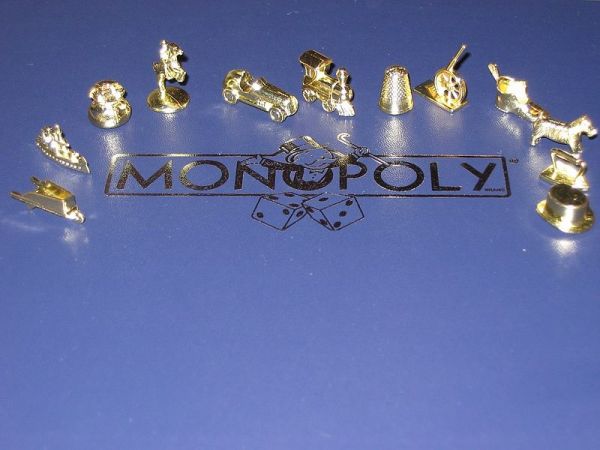
Playing board games like Scrabble or Risk against a skilled player can be aggravating. Here are a few devious tactics and tips that may help you win (almost) every time.
MONOPOLY
Tournament players often employ an aggressive strategy at the beginning of their matches. They purchase every property they land on. Then, after a little wheeling and dealing with other players to obtain all the properties of a single color, they start placing houses on their squares. (The cheaper ones first, because funds are typically low early in the game.)  Opinions vary on which properties are landed on the most often, but many swear it’s the orange ones. Buying as many of those as possible should be considered a priority, because the more property you own there, the more you get to collect in rent from the other players. Late in the game, it pays to stay in jail for as long as possible. That way you can collect rent on your properties while you remain safely behind bars, away from your opponents’ rent-earning properties.
Opinions vary on which properties are landed on the most often, but many swear it’s the orange ones. Buying as many of those as possible should be considered a priority, because the more property you own there, the more you get to collect in rent from the other players. Late in the game, it pays to stay in jail for as long as possible. That way you can collect rent on your properties while you remain safely behind bars, away from your opponents’ rent-earning properties.
BATTLESHIP
 (Image credit: Flickr user Andrew Malone)
(Image credit: Flickr user Andrew Malone)
When setting up your ships at the beginning of the game, it helps to place smaller vessels alongside or beneath larger ones. You should also put at least one ship on the edge of your board, since most players tend to aim for the middle. Another tip: never fire another peg within one space of a miss. This will help reduce your need to randomly guess where your opponent’s ships are hiding by at least half. There’s also the “checkerboard method,” which involves imagining the board with alternating black-and-white squares and firing only on the black ones. Then, once you score a hit, you should fire pegs adjacently until you sink your opponent’s boat.
THE GAME OF LIFE
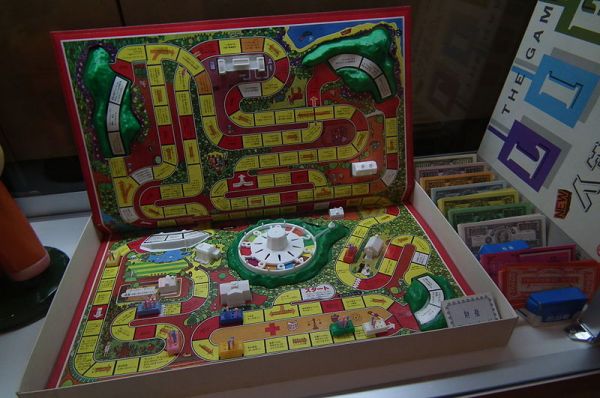 (Image credit: 松岡明芳)
(Image credit: 松岡明芳)
At the beginning of the game, you should probably go to college. This will help you get a better job and earn a higher salary, although doing so might not help if you don’t land on enough “Pay Day” squares later on. Auto and home insurance can come in handy, but unless you’re really unlucky, you’ll be throwing away your hard-earned play money. Instead, invest in stocks. If you land on a “Lucky Day” square, you should always gamble instead of keeping the initial jackpot— the chances of winning are around 5 to 1.
SCRABBLE
 (Image credit: The NeatoShop)
(Image credit: The NeatoShop)
You don’t need a huge vocabulary to win at Scrabble, but it does help to know a lot of the obscure, two-letter words to use late in the game where there isn’t a lot of space available for longer words. First, there’s “za.” Definition: “pizza.” “Qi” is another simple but powerful word. (It means “life force.”) And don’t be afraid to swap out all your letters if you wind up with a tray full of lousy ones. Yes, you lose a turn, but it will likely aid you in the long run. Another key tactic: play defensively. Don’t create words that will allow your opponents to capitalize on the triple-letter or triple-word squares. Oh, and there’s one more word you should memorize: “oxyphenbutazone.” It’s an anti-inflammatory drug, and, theoretically, the highest-scoring word possible in Scrabble. It could earn as many as 1,778 points.
RISK
 (Image credit: Jorge Royan)
(Image credit: Jorge Royan)
Since the late 1950s, the “Game of Global Domination” has brought out the power-hungry dictator in millions. If full-scale warfare isn’t your forte, follow these tips the next time you play, and end the game quickly. At the game’s outset, focus on taking over every territory in Australia and South America— two remote continents that are easy to defend— as quickly as possible. This will earn you some “continent bonuses” that will significantly boost the number of armies at your disposal. Then allow several turns to pass while your opponents attack each other.
Once your forces grow big enough, launch your own invasions. It goes without saying that when you attack a territory, do so with as many armies as possible. Why? Because if you win the battle with just a few armies, you probably won’t have enough left to protect the territory you invaded. Also, learn a lesson from Napoleon: don’t attempt to invade both Europe and Asia at the same time.
_______________________________
 The article above is reprinted with permission from Uncle John's Canoramic Bathroom Reader. The latest annual edition of Uncle John’s wildly successful series features fascinating history, silly science, and obscure origins, plus fads, blunders, wordplay, quotes, and a few surprises
The article above is reprinted with permission from Uncle John's Canoramic Bathroom Reader. The latest annual edition of Uncle John’s wildly successful series features fascinating history, silly science, and obscure origins, plus fads, blunders, wordplay, quotes, and a few surprises
 Since 1988, the Bathroom Reader Institute had published a series of popular books containing irresistible bits of trivia and obscure yet fascinating facts. If you like Neatorama, you'll love the Bathroom Reader Institute's books - go ahead and check 'em out!
Since 1988, the Bathroom Reader Institute had published a series of popular books containing irresistible bits of trivia and obscure yet fascinating facts. If you like Neatorama, you'll love the Bathroom Reader Institute's books - go ahead and check 'em out!
Inside the Food Lab with Kenji López-Alt
He has boiled hundreds of eggs in the quest for breakfast perfection. He has expended thousands of words on the divisive subject of mashed potatoes. And he is the only one who cares enough to test absolutely every possible shape of pan you could ever cook with. In this episode of Gastropod, we interview the ultimate food nerd: J. Kenji López-Alt.
 López-Alt trained as a scientist before working as a chef, and he has dedicated the past six years to “unraveling the mysteries of home cooking through science” in The Food Lab, his wildly popular column at Serious Eats, which is now an encyclopedic book of the same name. The book contains hundreds of recipes, from the perfect tomato sauce to salmon with basil caper relish, along with instructions for amassing the ultimate set of kitchen tools, and scientific tips for everything from making homemade ricotta to simmering the tastiest French onion soup.
López-Alt trained as a scientist before working as a chef, and he has dedicated the past six years to “unraveling the mysteries of home cooking through science” in The Food Lab, his wildly popular column at Serious Eats, which is now an encyclopedic book of the same name. The book contains hundreds of recipes, from the perfect tomato sauce to salmon with basil caper relish, along with instructions for amassing the ultimate set of kitchen tools, and scientific tips for everything from making homemade ricotta to simmering the tastiest French onion soup.
For this episode, we talk to him about the rigorous double-blind experiment he set up to discover whether New York City’s water is truly the secret ingredient in its superlative pizza crust. We persuade him to share his secret triple-umami-bomb blend that has everyone who tastes his chili begging him to reveal where he found the beefiest beef possible (Marmite lovers, rejoice!). And finally, López-Alt breaks it to us that we have been doing everything from slicing our onions to seasoning our burger patties all wrong, in ways we’d never even thought to worry about. Listen and learn: this is the kind of science that is guaranteed to double the deliciousness of your next kitchen adventure.
Episode Notes
Kenji López-Alt is managing culinary director of Serious Eats. His column, The Food Lab, was launched in 2009: its new online video series is well worth checking out. The Food Lab book can be purchased in your local bookstore or online from September 21, but is available for pre-order here: it’s awe-inspiringly thorough and filled with revelatory tips, tricks, and recipes.
The post Inside the Food Lab with Kenji López-Alt appeared first on Gastropod.
El Sótano - The Deslondes; una delicatessen de Nueva Orleans - 07/09/15
El debut homónimo de The Deslondes nos acerca a una de las mejores bandas salidas de Nueva Orleans en los últimos años. Con ellos arranca un episodio con mucho sonido de raíces y repelto de jugosas novedades. Playlist; The Deslondes (Fought the blues and won, Heavenly home, Still someone, Time to believe in), Dr Bontempi’s Snake Oil Company (Ghost memories), Red Beard (Nobody’s gonna bring me down), Los Deltonos (Merecido), King Khan and BBQ Show (Buy bye Bhai), The Booty Hunters (Hold on), Bob Wayne (Rock’n’Roll) y Left Lane Cruisers (Whitebread n’ beans).
Y en Producto Perrotti Gijón; The Roaring 420’s (Hey Lou).
9 Signs You’re Truly In Love With Your Partner, Not Just The Idea Of Them

1. You encourage their personal growth.
“Changing” gets such a bad reputation. We hurl it around as if it’s an insult: You’ve changed! You’re not the guy I fell in love with! We act as if it’s some horrible sin. AGH! CHANGE! When the truth is, we’re all ALWAYS changing. Your partner is no different, and you know that. You don’t expect them to stay stuck the same exact person you first started dating. But you grow together, not apart.
2. They naturally fit into your long-term plans.
When you imagine the blueprint of your life, it’s never a question that your partner is part of that vision. Neither of you are afraid to discuss it, either. It’s not some intense 5-year plan set in stone, you just both know what you want. And right now? It’s each other. And you don’t foresee that changing.
3. You’re not concerned about “Keeping Up With The Kardashians.”
Actually, you could like the show, who cares? That’s not my business. Kardashians just seemed more timely than the Joneses. What I mean is that your relationship isn’t for the sake of show. Monday isn’t simply about your #MCM. Not that there is anything wrong with your love making a few splashes on social media, but it’s not what you really care about. Or where you get validation. You aren’t in it for the heart-emojis from strangers or friends cooing over how #relationshipgoals the two of you are. None of that matters, really. And you know it.
4. You know how to be alone.
Some people have serious issues with being alone. It’s a natural tendency, as a human, to want company. We’re pack animals. I get it, I do. But it can be so easy to replace this fear of solitude with just…constantly being with someone. So you know your love isn’t a side effect of this because you’ve learned how to be alone. You aren’t just with your partner because, to quote Drake, you hate sleeping alone. You’re with them because you love them.
5. You’re not harboring any ill will towards exes.
It’s all fun and games to be like: “Lolz, I hate my ex!” But in the most ideal and healthiest situation, there wouldn’t be any left-over negative feelings. You’re not cyberstalking them. You’re not still in love, or hoping their life falls apart. You don’t care. You wish them the best, genuinely. You’re not worried about the past, you’re too busy cherishing the present.
6. Being with them feels like home.
You know that moment when you get home from a long vacation, flop onto your bed, and it’s the most comforting-relieving-Oh-My-God-finally feeling to ever exist ever? That’s how you feel when you see your significant other. You can be a thousand miles away from your place of residence, but with them? You’re home.
7. You fully trust in one another.
Being vulnerable with someone is terrifying. That’s why we call it “falling” in love. It can feel like diving head first from a skyscraper. But loving someone, for every bit of who they are, is a bit like the bouncing trampoline firefighters put out for people to land on. They’ve got you. It’s okay to open up. You won’t hit the concrete.
8. You don’t compare the relationship.
Okay, so Katie and Dan say sweet dreams every night. And Greg and Dustin have traveled the world together. Cool. That’s wonderful for them. But it doesn’t change your personal dynamic. You’re not in competition with any couple. And you never try to be.
9. You don’t worry if someone “better” is out there.
First, let me say this: ALL. HUMAN. BEINGS. FANTASIZE. This is normal. If you tell me you have never ONCE had a sex dream about someone other than your current partner, this is what I have to say to you:
But just because you can find other people attractive doesn’t mean you’re sitting around wondering if you should secretly activate Tinder. There are actually billions of probably wonderful, intelligent, good-looking humans roaming around, but it doesn’t matter to you. You’ve got your person. 
4000 tractores rodean Santiago ao longo de 10 quilómetros
Arredor de 4.000 tractores rodean neste momento Santiago de Compostela ao longo de dez quilómetros. A participación cumpriu as expectativas da organización, a Plataforma en Defensa do Sector Lácteo Galego, malia os atrasos e as longas esperas ás que se ven obrigados os gandeiros nun día de sol implacable na capital galega. De momento, os tractores permanecerán ata mañá estacionados rodeando a capital galega.
A mensaxe das organizacións agrarias integrantes da plataforma é coincidente: o acordo ao que se chegue o xoves en Madrid entre industria, distribución e produtores debe garantir uns prezos que cubran os custos de produción para o gandeiro e debe estar respaldado cun decreto polo Goberno para que sexa de obrigado cumprimento, con sancións incluídas. E con carácter inmediato, porque a situación dos gandeiros galegos é límite e non pode agardar máis meses.
Está previsto que se celebre unha asemblea ás 19:30 horas na xplanada da estación de autobuses de Santiago. na que os gandeiros decidirán as accións a tomar nos próximos días.
Para o xoves está convocada unha manifestación en Santiago de Compostela á que está previsto que se sumen os gandeiros de Lugo, que non están a participar na tractorada na capital galega. O venres, día 11, reunirase a Plataforma en Defensa do Sector Lácteo Galego para valorar o acordo ao que se chegue en Madrid o día anterior. En caso de non cumprir as demandas dos gandeiros, a Plataforma xa anuncia que endurecerá as protestas, con mobilizacións indefinidas e unha folga de entregas de leite á industria.
Valoracións das organizacións agrarias
Roberto García, secretario xeral de Unións Agrarias, advertiu de que “Galicia está nunha situación dramática porque á caída de prezos a nivel europeo, xúntase que somos a comunidade de España na que menos se paga o leite”.
En canto ao acordo deste xoves en Madrid, García advertiu de que “ten que garantir que non se pode pagar ao gandeiro por debaixo dos custos de produción (…) e ten que contar cunha base legal regulada de obrigado cumprimento e que estableza sancións” . Para iso demandou que “o Ministerio ten que lexislar para que o acordo sexa de obrigado cumprimento e con sancións”.
Roberto García: “Os gandeiros precisan unha solución para a nómina de outubro”
O secretario de UUAA reclamou tamén que “o acordo ten que implicar que os contratos lixo e as baixadas de prezos que está anunciando a industria se retiren este mes e o día 1 de outubro haxa uns novos contratos que impliquen de forma obrigatoria que ningunha industria pode pagar por debaixo dos custos de produción” .
“Non nos vale unha solución para dentro de 6 meses, precisamos unha solución para a nómina do mes de outubro. Non nos imos volver para a casa despois da tractorada, se temos que morrer imos morrer de pé”, advertiu.
 Dende o Sindicato Labrego Galego, Isabel Vilalba defendeu que “políticas que non leven a ter excedentes, que reforcen o valor engadido e ter unha lei que garante as marxes na parte produtora”.
Dende o Sindicato Labrego Galego, Isabel Vilalba defendeu que “políticas que non leven a ter excedentes, que reforcen o valor engadido e ter unha lei que garante as marxes na parte produtora”.
A este respecto, alertou “sobre as falsas mensaxes que está a difundir a conselleira do Medio Rural, porque hoxe unha organización de produtores está indefensa fronte ás grandes industrias multinacionais”. Pola contra, a secretaria xeral do SLG insistiu en que “o que necesitamos é unha base xurídica que permita unha negociación colectiva entre gandeiro e industria, con mediación da administración”.
Francisco Bello, secretario xeral de ASAJA Galicia, demandou pola súa parte que “dunha vez por todas se recupere o prezo do leite” cun acordo que dea estabilidade no tempo ao sector e con medidas legais que obriguen ao seu cumprimento. “E se non chega, haberá que seguir loitando”, advertiu.
“O de que os sindicatos e a Plataforma non defendemos os intereses dos gandeiros é unha mentira do PP”
Anxo Escariz, portavoz da Organización de Productores de Leche (OPL) asegurou que “no sector do leite hai unidade total porque hai unha Plataforma en Defensa do Sector Lácteo Galego na que estamos todos representados”.
Anxo Escariz: “A conselleira está contenta en dividir aos gandeiros entre Santiago e Lugo”
Neste sentido, subliñou que “apoiamos aos gandeiros de Lugo pero temos que facer forza en Santiago para que se nos vexa a todos xuntos” . E advertiu de que “o único que hai en Lugo é unha manipulación da conselleira e do Partido Popular que quere dividir aos gandeiros e ter a metade en Lugo e a metade en Santiago, se por eles fora mellor sería que houbera hoxe 50 tractoradas” .
Escariz preguntouse “que reivindicacións das que defenden os representantes da asemblea de Lugo non están xa incluídas nas reivindicacións da Plataforma”. “E iso de que os sindicatos e a plataforma non defendemos os intereses dos gandeiros é unha burda mentira do PP”, concluíu.
Pola súa parte, Elías Somoza, da FRUGA criticou a falta de implicación do presidente Feijóo cos problemas do sector lácteo e pediu que “se nas tractoradas das comarcas a sociedade apoiou aos gandeiros, en Santiago e en Galicia tamén lle pedimos á sociedade que nos apoie”.
Feijóo: “Apoiamos aos gandeiros e esperamos maior sensibilidade da Unión Europea”.
Por último, o presidente da Xunta, Alberto Núñez Feijóo, asegurou a través dun comunicado que “a Xunta de Galicia quere amosar o seu apoio aos gandeiros do sector lácteo galego e agarda unha maior sensibilidade da Unión Europea para garantir a viabilidade futura das explotacións”.
Feijóo tamén lle trasladou aos representantes do sector “o compromiso do Goberno autonómico de seguir traballando por que as reivindicacións do sector lácteo galego sexan escoitadas tanto no conxunto de España como en Bruxelas para lograr solucións que garantan un futuro viable e estable para as explotacións”.
Galería de imaxes da tractorada:
La entrada 4000 tractores rodean Santiago ao longo de 10 quilómetros aparece primero en Campo Galego.
My hovercraft is full of Petromyzon marinus
The sea lamprey, Petromyzon marinus, while most notable for its frightening mouth, is one of the oldest living vertebrates.
They were once common in rivers in the UK, but dams, pollution and other human activity adversely affected their habitat and spawning grounds. The 2009 discovery of a sea lamprey in the Thames was considered to be an indicator of improving water quality.
Lamprey pie recently made an appearance in the Game of Thrones TV series. In real life, King Henry I was reported to have died from consuming "a surfeit of lampreys."
His lamprey-hastened death would have far-reaching consequences:
At around sixty-eight years of age, he was still in sufficiently good health to be planning to go hunting on the following day when, contrary to his doctor's orders it was said, he dined on lampreys and became ill during the night. Within a few short days he was dead, and the peace that had been a hallmark of his regime in Normandy and England was thrown into jeopardy.While its resurgence in certain UK waterways is good news, in North America the sea lamprey is a rather different kettle of fish.
The Great Lakes are home to several species of lamprey, including threatened non-parasitic species, but sea lampreys are an invasive species that threaten local fish populations.
Video: Silent Invaders
This threat has spawned some remarkable cooperation between the United States and Canada. In 1954, they signed a treaty that established the Great Lakes Fishery Commission (GLFC). Part of its mandate is sea lamprey control.
Facts about sea lamprey control in the Great Lakes:
GLFC (pdf)The methods used by Canadian and US authorities to control the sea lamprey population have evolved over the years.
Fisheries and Oceans Canada
US Fish and Wildlife Service
More recent research into sea lamprey control has focused on a "push/pull" method - namely the use of sex and death pheromones to drive them into traps. Curiously, this research may also have applications in lamprey conservation efforts:
Behavioural guidance using these odors has the potential to both improve control of invasive non-native sea lamprey in the Great Lakes as well as improving the efficiency of fish passage devices used in the restoration of threatened lamprey species elsewhere.If you happened to be in or near Traverse City, Michigan over the Labour (-or) Day weekend, you could have stopped by a sea lamprey exhibit. Visitors could "even have a lamprey attach to them [...] 'Most people will leave it one for a second, and the brave ones will leave it on long enough to get a picture,' said Marc Gaden, a spokesman for the Great Lakes Fishery Commission. 'You break the seal and it pops right off.'"
More on lampreys: The Biology of Lampreys: Symposium Proceedings (large pdf).
Author Jon Ronson on the consequences of online shaming and why we all need more empathy

"On social media, everybody's either a magnificent hero or a sickening villain. The pendulum is swinging wildly back and forward."
If you spend any time online, you've seen it happen: the public shaming. Someone — sometimes a famous person, sometimes an unknown — says, does, or tweets something offensive or just dumb. And then the pile-on begins. Sometimes it seems righteous. Sometimes it seems foolish. Sometimes it might even be completely and totally justified. But there's always a hangover.
In his latest book, So You've Been Publicly Shamed, which was published in April and will be out in paperback soon, Jon Ronson explores what it's like to be the target of outrage — and asks why this is such a persistent part of online life. He asks readers, at all times, to consider those who have been shamed as fellow human beings, even if what they were shamed over is considered justified by the reader.
I spoke with Ronson a few months ago about the book, whether the online left or right is more prone to shaming, and what the cure for social media shaming might be. This interview has been lightly edited and condensed.
On the history of shaming: "These public punishments fell out of favor ... because they were considered too brutal"
/cdn0.vox-cdn.com/uploads/chorus_asset/file/4037712/shutterstock_127534097.jpg)
Aigars Reinholds/Shutterstock
Public shaming punishments (helpfully demonstrated by this man putting his head into a pillory) were largely abandoned in the 1830s and 1840s.
Todd VanDerWerff
What's great about the book is how much it forces you to feel empathy for everybody profiled in it, no matter their crimes. To what degree were you really trying and thinking about restoring the humanity of these people?
Jon Ronson
That was my purpose with every single person in the book. A lot of these people were people who'd been stripped of their humanity, and my job was to try to give them their humanity back, or at least explain the reasons why they did what they did. This book is all about reminding people that human beings are dimensional, and they're not the worst thing that they ever did.
Todd VanDerWerff
You dig into the history of shaming. What were you most surprised by as you were researching the story of how we got here?
/cdn0.vox-cdn.com/uploads/chorus_asset/file/4037730/486845473.jpg)
Tim P. Whitby/Getty Images for Sundance London
Jon Ronson in 2014.
Jon Ronson
The thing that surprised me most is that the reason why these public punishments fell out of favor in the 1830s and 1840s is because they were considered too brutal. The punishment outweighed the crime, and people were losing their senses in the crowd. They were stopped on humanitarian grounds, as far as I could tell. Certainly, the documents that I found in the archives pointed to that.
People don't think that. People think, "They must have died out because they lost their power to shame." But I think that wasn't the case at all. I think the thing that surprised me most is that we are now bringing back something that was considered brutal in the 18th century [chuckles]. Who would have thought that would happen?
Todd VanDerWerff
Is this just a part of our psyche in some ways? Is this a thing we need to do when we feel somebody has done something wrong?
Jon Ronson
You could say that. But then remember what happened to that guy Michael Hubacek who had to wear a placard that said, "I killed two people while driving drunk." And then everybody stopped their cars and were like, "You poor thing. You have to walk up and down the sidewalk with this placard? You poor thing, come with me to church, things will be okay." In real life, everybody's lovely to each other. I like to take from that the idea that we are actually empathetic, compassionate people. We've just forgotten that on the internet, and we just need a reminder.
Todd VanDerWerff
I read an interview you did with Salon, where you mentioned that when you went looking for people who had shamed others, people who were on the right were a little more embarrassed by what they'd done than people on the left. Why do you think that the left in some ways is perhaps more susceptible to the allure of public shaming?
Jon Ronson
I honestly don't know, because I am on the left. It really took me by surprise, actually, that after 30 years writing these stories about powerful, crazy people, like abuses of power, and everybody always agrees with me [chuckles]. Except when I'm talking about Justine Sacco, and most people agree with me, but some people are like, "Well, you must be a racist as well."
I don't think I quite understand, actually, at this moment in time why certain people on the left are behaving in this way, because I am a person on the left. Maybe it's because throughout history, when somebody is an oppressed minority and they get power, it takes a while for them to work out how to use that power judiciously. So maybe that's the reason. But that's really speculation.
/cdn0.vox-cdn.com/uploads/chorus_asset/file/4037732/publiclyshamed.jpg)
Riverhead Books
The cover of So You've Been Publicly Shamed
Todd VanDerWerff
Especially for people who had spouses or children, what was the shrapnel effect for the other people in their lives of those who were shamed as this was going on around them?
Jon Ronson
It's awful, because when this happens to you, it mangles your mental health. Anxiety, depression, insomnia, PTSD. Anybody who's ever lived with anybody with any kind of mental disorder or mental illness knows how devastating it is for everybody. It's not only the mental health issue, but people lose their jobs, lose their reputation. You have to get rid of your medical insurance. These are devastating things for everybody. Children are going to therapists because they've been damaged by something that happened on social media.
Todd VanDerWerff
There's obviously tons of good stuff happening on social media. What can we learn from the good to help us deal better with the bad?
Jon Ronson
I see something magnificent happening on Twitter, and it happens a lot. I read this heartbreaking story about this pit bull that had been in a shelter for five years and nobody had adopted it. So the pit bull posed with a placard he had written, saying, "Everybody at the shelter tells me I am a good boy — why is nobody adopting me?" Honestly, I just burst into tears, and then it turns out that the pit bull did get adopted. And there's lots and lots of stories like that. These things are wonderful.
There's a slight inherent problem, I think, with these wonderful things though, which is that on social media, everybody's either a magnificent hero or a sickening villain. The pendulum is swinging wildly back and forward. So, as much as I love those things when they happen, sometimes I wish everybody would see everybody as a mixture of magnificent hero and sickening villain. I wish everybody would remember that we're all in the middle of that. We're all gray. We're all gray areas.
Justine Sacco
Sacco tweeted a seemingly racist joke, then got on a lengthy flight to Africa. Gawker published the tweet, and Sacco eventually lost her job. Sacco had intended the joke to be on the sort of person who would say something that racist, but her intent was lost both in the actual, poor construction of the tweet and in the ensuing social media firestorm.
/cdn0.vox-cdn.com/uploads/chorus_asset/file/3578404/107846319.0.jpg)
Bruce Bennett/Getty Images News
"Has Justine Landed Yet" trended throughout her long flight.
Todd VanDerWerff
Some of the best portions of the book are about Justine Sacco, who had her life ruined because of a poorly constructed joke. But the social media fervor around her was so addicting in a lot of ways. How do you get people to take a step back from that and think about the person on the other end of the storm?
Jon Ronson
I read this amazing review of my book in the New Statesman in England, which is, like me, a left-leaning magazine. And the writer Helen Lewis said she tweeted something [about the Sacco joke] along the lines of, "I'm not sure that this joke was intended to be racist." And she said straight away that she got a volley of, "Well, you're just a privileged bitch yourself." And so, she said, to her shame, she shut up. She didn't say anything, because social media was frightening. We are frightening. And it's like, "We'll get you too, if you're not careful."
I think what you have to do is stand up for what you believe. If you think Justine Sacco was being ill-treated, say it. That did happen actually with Trevor Noah, and I wonder whether the fact that the Trevor Noah thing happened the same week as my book coming out, and Monica Lewinsky's TED talk, I wonder whether that helped to kind of re-frame that situation into something more empathetic. Because people were thinking about this. We were in sympathy because of a joke that came out badly.
Todd VanDerWerff
You talk to Sam Biddle about his role in publicizing the Sacco tweet, and he says something to the effect of, "I'm sure she was just fine." Why is it so easy to divorce ourselves from consequences in these situations?
Jon Ronson
The drone strike operator doesn't need to look at the village he's just smashed up. I guess that's the reason. Maybe we should always be in the same room as our victims. Maybe that's it. I think the internet is stripping us of our empathy. It's turning us more sociopathic, because lack of empathy, obviously, is one of the key items on the psychopath checklist.
Jonah Lehrer
After being caught plagiarizing material, the pop-science author Lehrer went to the Knight Foundation to issue a public apology — where he was forced to deliver his speech while watching a lengthy stream of tweets yelling about his awfulness.
/cdn0.vox-cdn.com/uploads/chorus_asset/file/4037722/81287213.jpg) Photo by Thos Robinson/Getty Images for World Science Festival
Photo by Thos Robinson/Getty Images for World Science Festival
Jonah Lehrer appears at a panel discussion before his wrongs were exposed.
Todd VanDerWerff
Some of these people you write about, like Jonah Lehrer for instance, are in the public eye. In journalism in the US, at least, we have different burdens of proof for libel for public figures and private figures. Do you think, in some ways, the same should apply to social media? Should we get more latitude to shame public figures?
Jon Ronson
There's nothing wrong with being critical of public figures. Criticism is good, and satire is good, and investigative journalism is good, and citizen journalism is good. Curiosity is good. Yelling is good. The only thing that's bad, for me in this, is the disproportionate punishment of people who did virtually nothing wrong. And that's different from criticism. A kind of punishment without trial, a kind of totalitarian thought process where nobody's allowed to offer an opposing view. That's what's happening, and that's what's bad.
Todd VanDerWerff
Lehrer did something wrong, and even he will admit that. Where do you draw that line between being honestly critical of his work and shaming him?
Jon Ronson
Jonah's a different case. I think with the Jonah story, everything that happened up until that Knight Foundation lunch was completely appropriate. Jonah did do things that were wrong, and he needed to be fired, and the shaming that happened to Jonah was not inappropriate. But then when he decided to apologize in front of a live Twitter feed, and while he was apologizing, people were yelling at him via Twitter, "Bored," "You're just a sociopath," that was extraordinary and incredibly brutal, and everything changed. So everything that happened to Jonah until that moment is completely appropriate, and at that moment, everything turned.
Trevor Noah
Shortly after being hired to host The Daily Show, the comedian's tweet history was searched through, and several jokes, many accused of being sexist, were found. The jokes' (admittedly horribly unfunny) content provoked questions of whether Noah was suitable to take the hosting job on The Daily Show.
/cdn0.vox-cdn.com/uploads/chorus_asset/file/3557460/rs_1024x759-141205133422-1024.Trevor-Noah-The-Daily-Show.ms.120514.0.jpg)
Comedy Central
Trevor Noah will assume the hosting duties for The Daily Show on Monday, September 28, 2015.
Todd VanDerWerff
Did you follow the Trevor Noah situation at all this spring?
Jon Ronson
Of course. In fact, I'd been on The Daily Show just a day or two before it happened, so I thought that was interesting timing that I was talking about this exact same issue on The Daily Show, then a couple of days later the issue engulfed The Daily Show in a funny way.
The first thing I thought was, "Wow, those were shitty jokes." Like everybody, I felt that knee-jerk, you know, "What kind of guy is this to make those jokes?" And then I sort of remembered my book, and remembered what my book was about, and remembered that it's kind of shitty to dredge over 9,000 tweets and find five — or whatever — offensive ones and pretend that those five tweets are like a clue to this person's secret self. When Comedy Central stood behind him, I thought, "That's great, that's what people should be doing."
Todd VanDerWerff
To what degree do you think that comedy has to play around with these potentially offensive ideas?
Jon Ronson
Comedy should be unafraid. I think we're living in afraid times, and it's because on social media, we have the opportunity to right wrongs. So we did right wrongs, and we attacked people who were being racist or homophobic, or were misusing their privilege. We attacked the powerful. And that was great, and we attacked them in a way that they used to be impervious to. They used to not care what people without a voice thought. Then, on social media we had a voice, but everybody had a voice, and it was powerful. As a result of that, things have really gotten frightened, and people are now frightened to tell jokes or offer controversial comments.
Todd VanDerWerff
I'm a white guy, and I've frequently said things that were unaware of my own privilege. And I've had friends say, "You shouldn't have said that." Is there a way to do that on social media, without making somebody feel like shit, because 5,000 people swarm all at once?
Jon Ronson
If you said something stupid because of your privilege, I think if somebody had noticed that, they should say something to you, but not in a way that everybody else can see it. That kind of grandstanding, "Let's get this person," way.
Constructive criticism. Empathetic, compassionate, constructive criticism. I think we need to remember democracy. When somebody transgresses in a democracy, other people give them their points of view, they tell them what they've done wrong, there's a debate, people listen to each other. That's how democracy should be.
Whereas, on social media, it's not a democracy. Everybody's agreeing with each other and approving each other, and then, if somebody transgresses, we disproportionately punish them. We tear them apart, and we don't want to listen to them. And they're not allowed to say, "My god, I'm sorry, you didn't understand," or, "I made a mistake." People aren't allowed to engage in the debates when they're being shared. So, yeah, I think compassionate, constructive criticism is the way forward. Because it works. Empathy works. Compassion works. Cold, hard judgment and disproportionate punishment doesn't work.
Todd VanDerWerff
A lot of people were upset that Noah seemed more defensive than apologetic. When you talked to people for this book, was there a way when they were in the middle of a social media storm for them to be anything other than incredibly defensive?
Jon Ronson
There's a guy in my book, Mike Daisey, who is a theater guy who transgressed. He pretended that a piece of theater was a piece of journalism, and when he was being publicly shamed, he stood there and just yelled back. He was one man yelling at 10,000 people. And it seemed to work. Eventually people thought, "Oh fuck. Let it go." And he survived it. But I don't think that's the reason Mike survived it. I think what happened with Mike was that he had a career in the theater to fall back on. The theater never turned against him, and so it's much easier to stand up for yourself when you've got something to fall back on.
Honestly, if everything is at risk, the only thing you can do when you're in the eye of that hurricane is to just shut up, just not say anything, just be completely silent. And I think that's terrible. As human beings, we want to communicate to each other and explain and connect. That's democracy. Actually, time and again, you can see that the only way to survive is to apologize.
So You've Been Publicly Shamed is available wherever books are sold.








